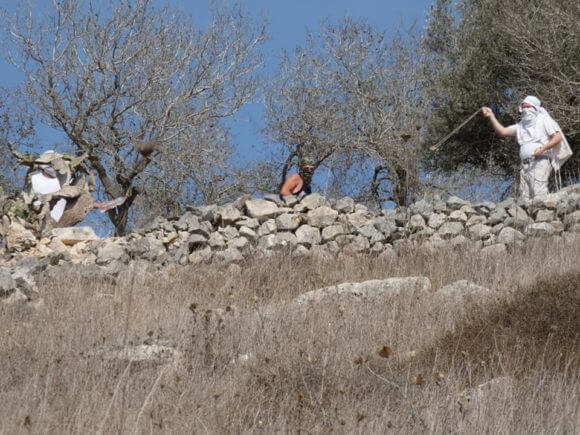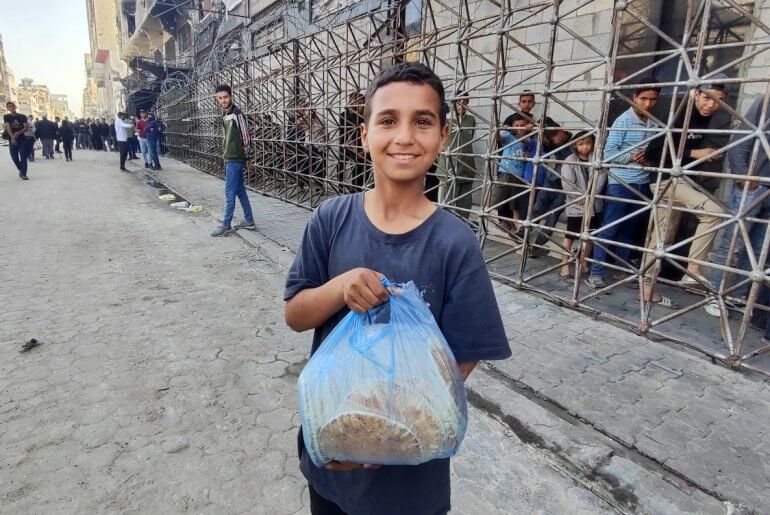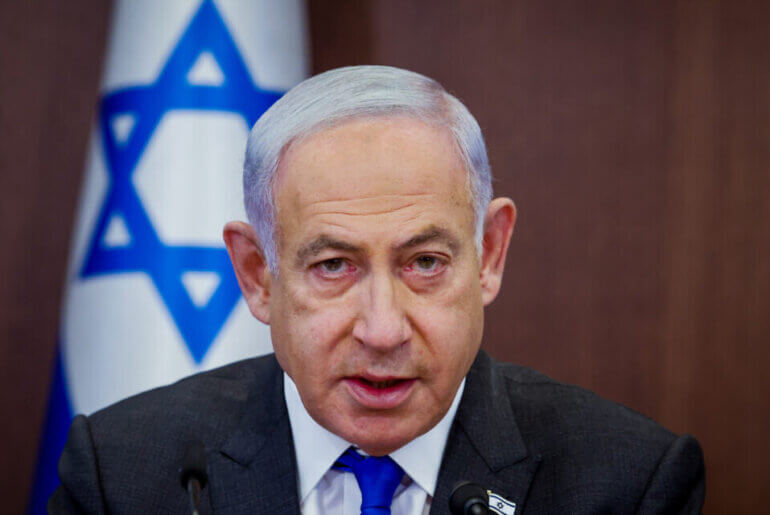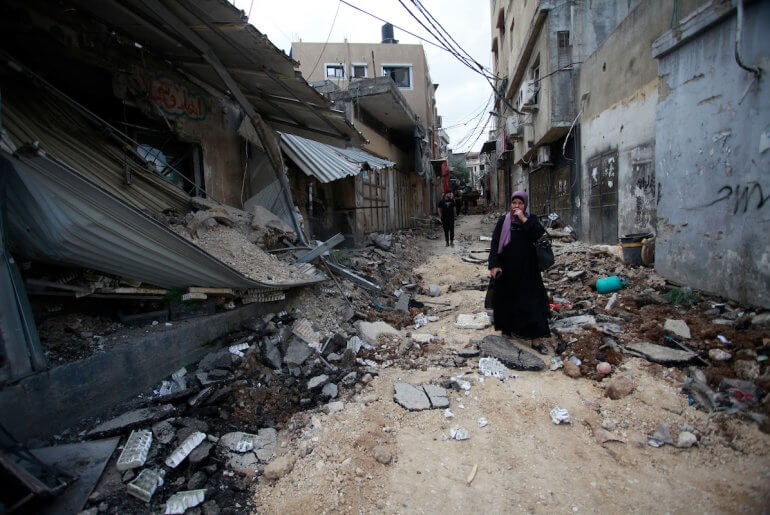Every year, the beginning of autumn is marked in Palestine with the olive harvest, which kicks off at the beginning of October and lasts for a number of weeks, as Palestinians work tirelessly to harvest their olive trees, which cover thousands of acres of Palestinian land.
The olive harvest is an intrinsic part of Palestinian culture and tradition, and has become symbolic of Palestinian ties to the land under Isralei occupation.
It’s an event cherished by Palestinians from all socio-economic backgrounds, especially those still living in rural towns and villages of the occupied West Bank, where olive trees grow in abundance.
But every year, as Palestinian families set out to their olive groves, they are inevitably met with violence from the Israeli military and Israeli settlers, who are known to coordinate attacks on Palestinian farmers and their crops during the harvest.
This year is no different. Since the beginning of the harvest, several cases of Israeli settlers physically assaulting Palestinian farmers and stealing their crops, as well as burning and chopping down Palestinian olive trees have been recorded.
Since October 6th, UN OCHA has reported at least 19 olive harvest related instances of settler attacks on Palestinians, though local media began reporting attacks days before that.
Israeli human rights group Yesh Din has reported 25 harvest-related incidents since the beginning of the month, Haaretz reported.
The 19 attacks documented by OCHA, which took place between October 6th and 19th, resulted in the injury of 23 Palestinian farmers, the damage and burning of over 1,000 olive trees, and the theft of “large amounts of produce.”
The nature of the settler attacks are well documented, and usually go as follows: masked Israeli settlers, often armed with guns, descend from their settlements which lie on the hilltops on the outskirts of Palestinian villages.
If there are no Palestinians around, the settlers may chop or burn down the olive trees — many of which are decades old — often stealing the olives off the trees before permanently damaging the trees.
If Palestinian farmers are present, settlers have been documented as physically assaulting farmers, hurling large rocks at them, kicking, and punching them.
In many cases, the settler attacks lead to larger clashes, with Israeli soldiers intervening and firing tear gas, rubber bullets, and sound bombs at Palestinian farmers.
Palestinians have accused the Israeli military of working in tandem with the settlers, and using excessive force against Palestinian farmers as they try to defend themselves and their land.
According to OCHA, in an incident in the Burqa village near Ramallah, Israeli soldiers intervened after settlers had stones physically assaulted Palestinian olive pickers on three occasions. But rather than directing their aggression towards the settlers, the Israeli army injured 14 Palestinians during the clashes, and left 30 trees burnt by tear gas canisters.
Ghassan Daghlas, a Palestinian who monitors settler activity in the northern West Bank, told Haaretz “this year we are seeing larger groups, sometimes dozens at a time, entering the groves, causing damage and attacking while the army looks on.”
“If you’re looking for a key sign of what occupation is about, it’s what’s happening in the olive groves,” Daghlas said.
According to Wafa, the official Palestinian Authority news website, there are more than 12 million olive trees planted across the West Bank, making the olive harvest “one of the biggest sources of economic sustainability for thousands of Palestinian families.”
The olive oil industry reportedly supports the livelihoods of more than 100,000 Palestinian families and accounts for a quarter of the gross agricultural income of the occupied territories.




1 of 2
https://www.haaretz.com/israel-news/.premium.highlight.MAGAZINE-settlers-hurled-rocks-at-the-palestinian-farmer-his-age-didn-t-deter-them-1.9255931
“Settlers Hurled Rocks at the Palestinian Farmer’s Head.
His Age Didn’t Deter Them”
“Settlers stoned and injured a 73-year-old Palestinian in his grove, others vandalized another farmer’s 200 trees. A journey during the season of harvest – which is also clearly the season of settler violence.”
By Gideon Levy and Alex Levac, Haaretz. Oct. 22. 2020.
EXCERPT:
“At home on the outskirts of the West Bank village of Na’alin, an elderly farmer, Khalil Amira, is nursing a head wound he suffered when settlers stoned him while he harvested olives in his grove – in front of his daughter and grandchildren. About an hour’s drive south, in the village of Jab’a, two other aged farmers are lamenting the damage wrought to their olive trees by other thugs. And these are only three recent examples of the dozens of Palestinian harvesters who are being assaulted on their lands on an almost daily basis.
“It’s autumn, with its clouds and its howling wind, as the old Israeli song goes, and it’s also the season of the olive harvest – and with it settlers who go on a rampage every year at this time, across the West Bank. It’s not autumn if there’s no olive harvest, and there’s no olive harvest without settler rampages. And the start of this season bodes ill.
“Several weeks into the harvest, which began this year on October 5, the Yesh Din – Volunteers for Human Rights NGO has already documented 25 violent incidents, and no one apparently intends to put a stop to them. The police accept complaints and take down testimonies, but that seems to be the extent of their activity.
“According to Yesh Din, between 2005 and 2019, only 9 percent of the complaints filed by Palestinians over Israelis’ violence against them ended with the alleged perpetrators being brought to trial. Fully 82 percent of the cases were closed, including nearly all of the complaints about the destruction of olive trees.” (cont’d)
2 of 2
“Amira is surrounded by family in his fine house in Na’alin, west of Ramallah. His head is bandaged, concealing 15 stitches; his family envelops him with concern and warmth. Since being wounded last week by a stone thrown at him by settlers, he’s returned to the hospital twice, because of possible intracranial bleeding. A working man of 73, Amira was employed for 20 years as a welder in the predominantly ultra-Orthodox city of Bnei Brak, in Israel; he also worked for years at Elco, an industrial conglomerate. His father left him, his two sisters and his six brothers 100 dunams (25 acres) of olive trees, which he has been cultivating since his retirement, after becoming ill with a heart ailment. He speaks Hebrew fluently, and he and his family are gracious hosts.”